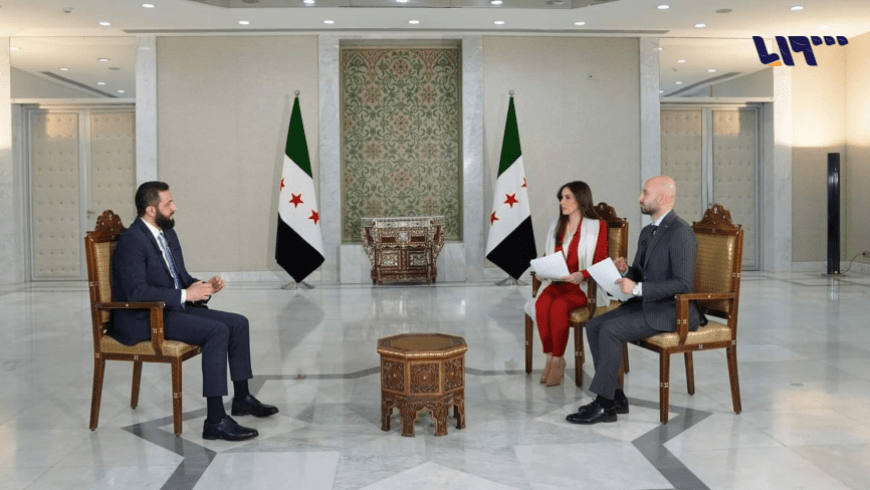In an exclusive interview with Syria TV, Syrian President Ahmad al-Sharaa underscored that the Syrian revolution was far from weak, as some might believe. He emphasized that the military forces under its banner had gained extensive experience, surpassing the Assad regime in several key areas.
Battles That Forged a Unique Military Doctrine
Al-Sharaa highlighted that revolutionary military officers had engaged in significant battles that honed their combat skills to a degree far exceeding the experience of the regime’s forces.
Sharaa’s Transitional Presidency: A Coup or a Necessary Step?
Revealing details of a meeting with a Western officer following the battle that led to the fall of the regime, al-Sharaa said, “About two or three weeks after the battle, a Western officer met with me—without mentioning his country’s name. He completely broke away from diplomatic formalities and stood up.”
Al-Sharaa continued, “The officer then told me: ‘I monitored the battle through satellites and drones, and I saw an extraordinary school of military science—one that we should consider ourselves students of.’”
He added, “Then, the officer removed a medal from his chest and presented it to me.”
Undeniable Military and Intelligence Superiority
Al-Sharaa stressed that his previous assertions about the revolution’s strength were not mere slogans to boost morale but were rooted in precise data.
He explained that a systematic comparison between the capabilities of the revolutionary forces and the regime revealed a significant advantage in favor of the revolution across political, economic, military, intelligence, and even social dimensions.
The Syrian president noted that the military forces formed during the revolution had acquired a high level of expertise and professionalism over the years. He also emphasized that their large number of fighters further reinforced their status and capabilities.
Exclusive Interview on Syria TV
Al-Sharaa discussed how the Assad regime collapsed within just 11 days despite decades of rule, explaining that the battle was the culmination of five years of meticulous planning in Idlib. He highlighted the efforts to unify factions and integrate various forces while underscoring the importance of establishing institutions founded on law and citizenship—free from sectarian quotas.
On the economic front, al-Sharaa outlined a ten-year reform plan aimed at transforming Syria into a favorable investment hub, with a particular focus on the return of displaced citizens and strengthening international relations. He also emphasized the crucial role of transitional justice in holding perpetrators of crimes accountable—without compromising civil peace.
This article was translated and edited by The Syrian Observer. The Syrian Observer has not verified the content of this story. Responsibility for the information and views set out in this article lies entirely with the author.


